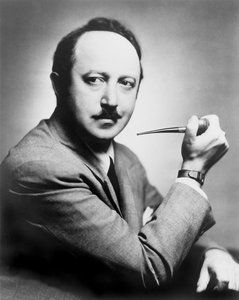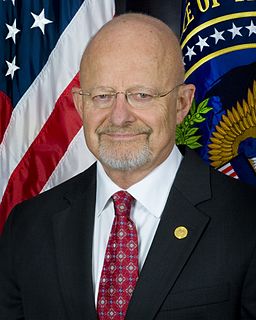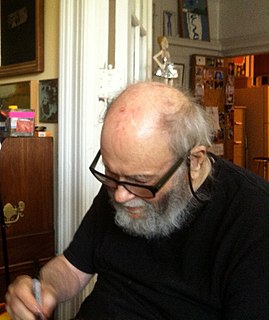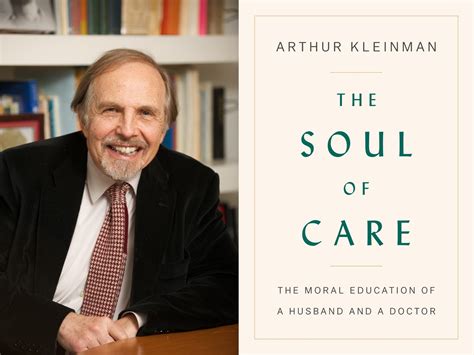A Quote by Philip Kitcher
In the end, we learn about the most basic philosophical questions - like "How to live?" - from a broad mixture of sources, including literature and philosophy, history and anthropology. These sources can guide our reflections on our own experiences, as we explore and reconsider. Mann contributed to such explorations in a distinctive way, and I hope my book brings that out.
Related Quotes
I use biography, I use literary connections (as with Platen - this seems to me extremely helpful for appreciating the nuances of Mann's and Aschenbach's sexuality), I use philosophical sources (but not in the way many Mann critics do, where the philosophical theses and concepts seem to be counters to be pushed around rather than ideas to be probed), and I use juxtapositions with other literary works (including Mann's other fiction) and with works of music.
One of the things I want to do in the book is to explore how philosophy can be done in literature. I start doing that in the first chapter, by introducing the idea of "philosophy by showing". What literature/philosophy shows is how to look at some important facets of life in a new way, thus changing the frame in which subsequent philosophical argument proceeds.
The real power of this book comes from its documentation from major sources. In fact, you will quickly discover that most of my documents about Jewish Supremacism are from Jewish sources. They argue more convincingly for my point of view than anything I could write. I encourage you to go to the sources that I quote and check them out for yourself. In this book I take you along with me on a fascinating journey of discovery in a forbidden subject. I urge you to courageously keep an open mind while you explore the topics ahead, for that is the only way any of us can find the truth.
This is an extremely ambitious book. In addition to science and mathematics, Byers brings to bear insights from literature, philosophy, religion, history, anthropology, medicine, and psychology. The Blind Spot breaks new ground, and represents a major step forward in the philosophy of science. The book is also a page-turner, which is rare for this topic.
In elaborating how "philosophy by showing" works, and in defending the idea that literature and music can contribute to philosophical "showing", I am also doing something more standardly philosophical. But I view most of the book as an interweaving of philosophy and literary criticism. If that entails a broadening of a standard idea of philosophy, it's a broadening I'd like to see happen.
Like most of my poems, 'Lie' has several sources: I read a very troubling book called The Sixth Extinction. I took note of the way people, including me, enjoy talking knowledgeably about how the world will end. I drove to Tucson and saw the desert flowering on either side of the road. And I glanced at my spam to see what people wanted to sell me these days.
In my own version of the idea of 'what art wants,' the end and fulfillment of the history of art is the philosophical understanding of what art is, an understanding that is achieved in the way that understanding in each of our lives is achieved, namely, from the mistakes we make, the false paths we follow, the false images we have come to abandon until we learn wherein our limits consist, and then how to live within those limits.
Michael Jackson is an extremely productive ethnographer, a serious reader of phenomenological and existential philosophy, and a remarkable writer at a level that one rarely sees in anthropology. Lifeworlds, unsurprisingly, is no exception. The several essays included here fit into an impressive whole that set out a compelling case for a type of ethnography of which Jackson is one of the masters. The writing is strong and the critical reflections impressive. This book defines an approach to anthropology that is resonant enough to challenge the leading models of our time.
I think that every educator, indeed every human being, is concerned with what is true and what is not; what experiences to cherish and which ones to avoid; and how best to relate to other human beings. We differ in how conscious we are of these questions; how reflective we are about our own stances; whether we are aware of how these human virtues are threatened by critiques (philosophical, cultural) and by technologies (chiefly the digital media). A good educator should help us all to navigate our way in this tangled web of virtues.
Language of the Gun shows why Bernard Harcourt has earned a reputation as one of our most provocative and informative analysts of the administration of criminal justice. Thoroughly interdisciplinary, he brings to bear on his subject a remarkably wide range of sources. Most striking are his probing interviews with at-risk youths which provide a fascinating and rare glimpse into how they think about guns and gun carrying. This book bristles with insight and information.
We are here to learn lessons and our birth chart tells us what our lessons are, what type of energy we possess in the first place, and how, by facing up to the challenges presented to us in life, spiritual growth will ensue. The birth chart is a 'tool' to guide us through our life. By understanding our basic make up, we can learn to make the most out of our positive points and try to improve on our weaker ones.
The traditional disputes of philosophers are, for the most part, as unwarranted as they are unfruitful. The surest way to end them is to establish beyond question what should be the purpose and method of a philosophical enquiry. And this is by no means so difficult a task as the history of philosophy would lead one to suppose. For if there are any questions which science leaves it to philosophy to answer, a straightforward process of elimination must lead to their discovery.






























